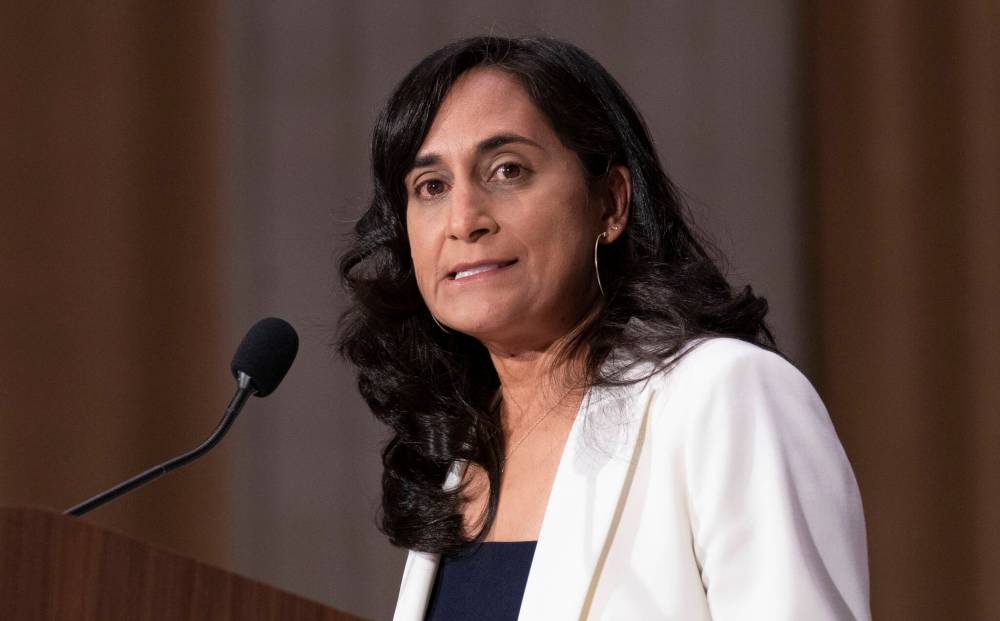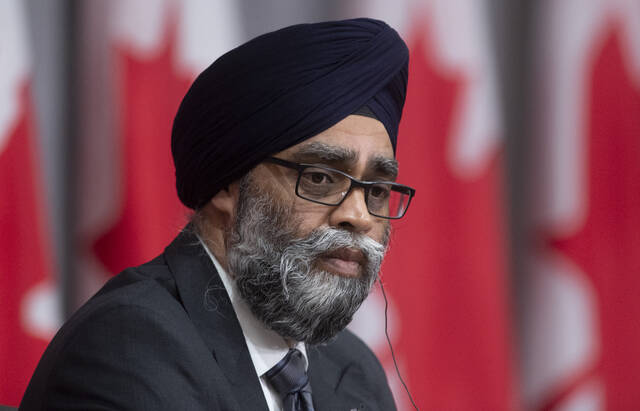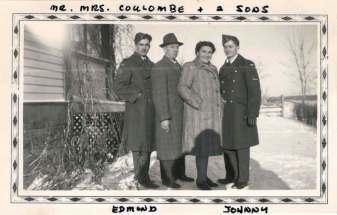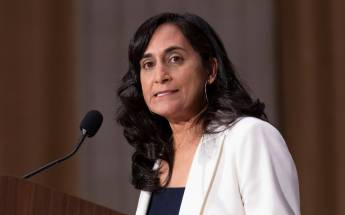Military gets better form of justice
Read this article for free:
or
Already have an account? Log in here »
To continue reading, please subscribe:
Monthly Digital Subscription
$0 for the first 4 weeks*
- Enjoy unlimited reading on winnipegfreepress.com
- Read the E-Edition, our digital replica newspaper
- Access News Break, our award-winning app
- Play interactive puzzles
*No charge for 4 weeks then price increases to the regular rate of $19.00 plus GST every four weeks. Offer available to new and qualified returning subscribers only. Cancel any time.
Monthly Digital Subscription
$4.75/week*
- Enjoy unlimited reading on winnipegfreepress.com
- Read the E-Edition, our digital replica newspaper
- Access News Break, our award-winning app
- Play interactive puzzles
*Billed as $19 plus GST every four weeks. Cancel any time.
To continue reading, please subscribe:
Add Free Press access to your Brandon Sun subscription for only an additional
$1 for the first 4 weeks*
*Your next subscription payment will increase by $1.00 and you will be charged $16.99 plus GST for four weeks. After four weeks, your payment will increase to $23.99 plus GST every four weeks.
Read unlimited articles for free today:
or
Already have an account? Log in here »
Hey there, time traveller!
This article was published 10/11/2021 (1491 days ago), so information in it may no longer be current.
Victims of sexual misconduct within the Canadian Armed Forces will finally get their day in court.
Last week, newly appointed Defence Minister Anita Anand announced she will transfer the investigation and prosecution of such cases away from the military and into the civilian justice system. While it’s an approach that should have been taken from the outset, the new minister should be lauded for her swift action in addressing a crisis left languishing by her predecessor.

The scope of the issue has come to light over the last year, with allegations of sexual harassment and misconduct brought forward against 11 current and former high-ranking members of the military. Until now, most of these cases have been under the purview of the military police and justice system.
To assume an internal body can effectively and fairly look into cases of this nature — ones that embarrass the institution and hold people in power to account — is naive. The military is designed to be a closed system with its own rule of law and a culture of silence. It should be exempt from policing itself.
Thus far, many of those accused have been stripped of their posts and forced into retirement. Only two cases of sexual misconduct involving military leadership — former chief of defence staff, retired Gen. Jonathan Vance and Maj.-Gen Dany Fortin — have resulted in criminal charges.
Minister Anand’s decision is based on recommendations made by retired Supreme Court justice Louise Arbour as part of an external review into sexual misconduct and harassment within the Canadian military. In a letter to former Defence Minister Harjit Sajjan, Arbour calls for the immediate transfer of all sexual offence investigations to civilian authorities temporarily.
“The issue of sexual harassment and misconduct in the CAF has opened the institution to unprecedented scrutiny and an equally unprecedented opportunity for change,” Arbour writes.

While Minister Sajjan seemed content with the status quo, Minister Anand has already proven she’s capable of taking decisive action on difficult issues that affect the very functioning of the department.
This is the first time so many members in senior leadership positions have been embroiled in similar controversies, but this is far from the first time the military has dealt with allegations of sexual misconduct.
As the leadership scandal grew, so did the number of claimants in a $900-million class action lawsuit aimed at the CAF and Department of National Defence. The lawsuit was initiated by former forces members alleging sexual harassment, sexual assault or discrimination based on sex, gender, gender identity or sexual orientation during service and settled in 2019. So far, nearly 14,000 claims have been filed. The period to do so closes at the end of November.
It’s clear that past attempts to mitigate sexual misconduct in the military have failed to make a difference.
It’s clear that past attempts to mitigate sexual misconduct in the military have failed to make a difference. Operation Honour, for example, did little more than order members to stop engaging in sexual misconduct and provide leadership with a convoluted incident management decision tree.
If those at the top are being accused of sexual offences, who are survivors supposed to turn to for adequate support? If the military can’t keep its own members safe, how can the institution be entrusted with keeping the country safe?
Sexual misconduct in the military is a crisis that needs an external judge and jury. Minister Anand should be commended for heeding recommendations and taking a good first step in that direction.







